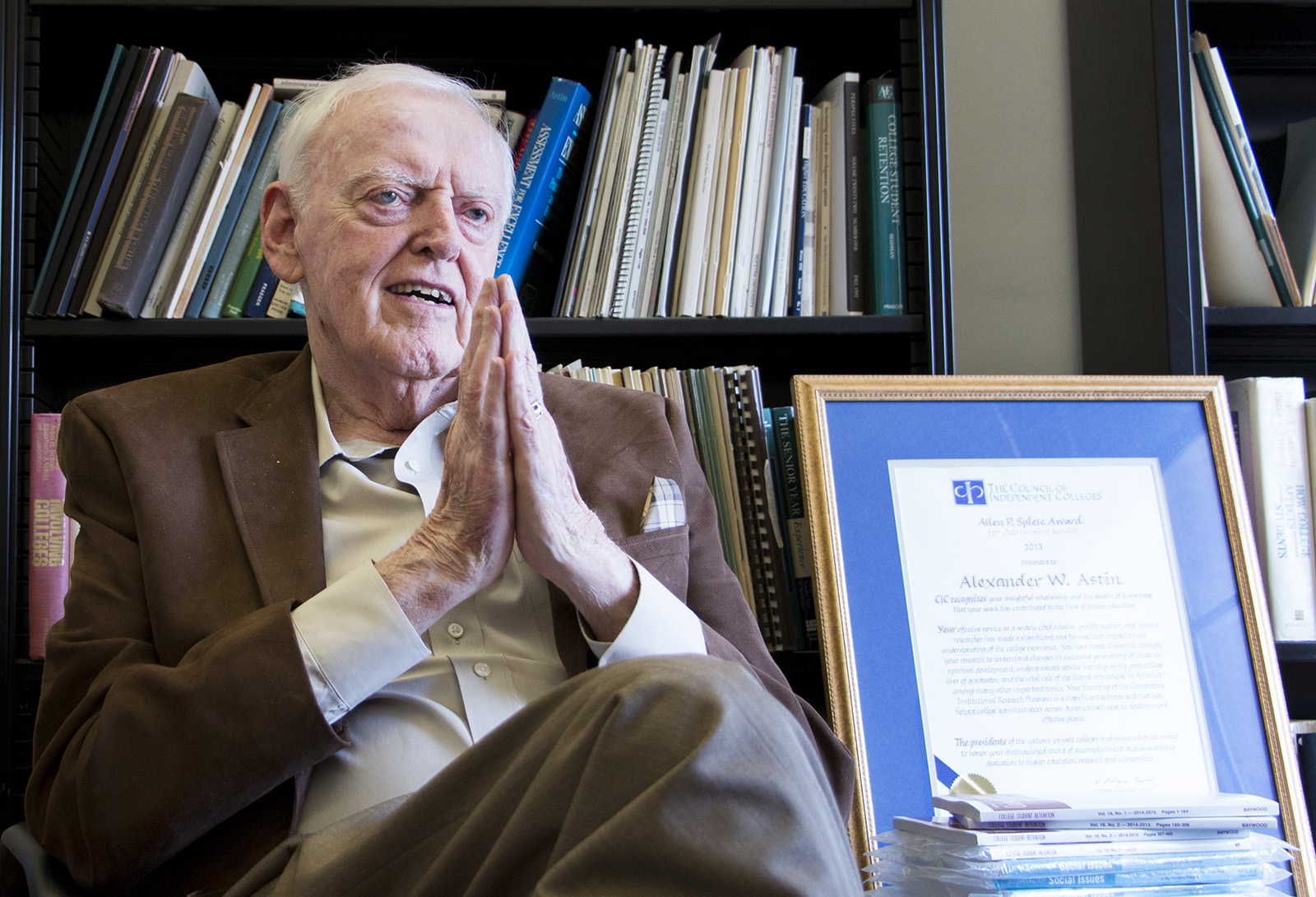Q&A: Professor shares negative affects of ‘smartness’ for college students

Professor emeritus Alexander Astin is promoting his new book in which he discusses the inequity of higher education. (Laura Uzes/Daily Bruin)
By Evolet Chiu
May 23, 2016 1:24 p.m.
Alexander Astin, professor emeritus at UCLA’s Graduate School of Education and Information Studies, is promoting his new book, “Are You Smart Enough?: How Colleges’ Obsession with Smartness Shortchanges Students,” at a launch in Santa Monica Friday.
He is the founding director of the Higher Education Research Institute at the UCLA Graduate School of Education and Informational Studies. Astin has conducted research in this field for 50 years and has written 21 books and more than 300 papers about higher education policy and educational reform.
In his book, Astin discusses the inequity of higher education. For every dollar spent on instruction for a full-time undergraduate student at a community college, two dollars are spent teaching an undergraduate student at a four-year university, he said. The imbalance of investment in education between students in community colleges and those in four-year universities puts the former at academic disadvantages.
The Daily Bruin’s Evolet Chiu spoke with Astin to discuss the effects of his research findings.
Daily Bruin: How are colleges shortchanging students?
Alexander Astin: “Smartness” is narrowly defined by scores on standardized admissions tests and many student abilities and talents cannot be captured in these numbers. Therefore, groups such as minorities, low-income and first-generation students get put at a competitive disadvantage. These types of students don’t have access to costly services such as counseling or tutoring that may help them attain higher scores, so they don’t get an equal education.
DB: What kind of disadvantages do these students face?
AA: Most have to go to community colleges which have worse facilities or less well-trained faculty (compared to a four-year university). Community colleges are underfunded: There is a 100 percent difference in expenditures for faculty instruction and facilities like residence halls and classrooms between community colleges and four-year colleges.
DB: How is this inequity reflected in higher education?
AA: Even in faculty meetings, you see people trying to promote their smartness. They are under pressure to publish or perish, too. We hire or promote people because they are good scholars, not because they are good teachers. Most faculty members are not interested in teaching the majority of students. They favor the smartest students because having them around makes professors feel smart themselves. Faculty are competitive too, and we model that competitiveness for students.
DB: What is your solution to this problem in education?
AA: There are plenty of talents we are neglecting in our admissions process. We have to take a serious look at our college admissions statements. We say we value honesty, citizenship, empathy and leadership, but we don’t see this (in education). Prescreening applications based on SAT or ACT scores and GPA doesn’t even begin to capture these qualities in students. Faculty should start discussing this and work with administrators to change the current system.
DB: How has this trend in education affected the mental health of students?
AA: My research shows that college students are stressed, have too much to do and are under too much pressure. Mental health of young people has declined and depression has increased steadily. Evidence from my research shows that young people entering college today compared to 10 or 20 years ago show more anxiety and depression. These statistics are pretty telling: We need to call attention to all students, not just the “smart” ones. If we don’t invest equally in less prepared students, society will have more people incarcerated, on the streets and unemployed.


